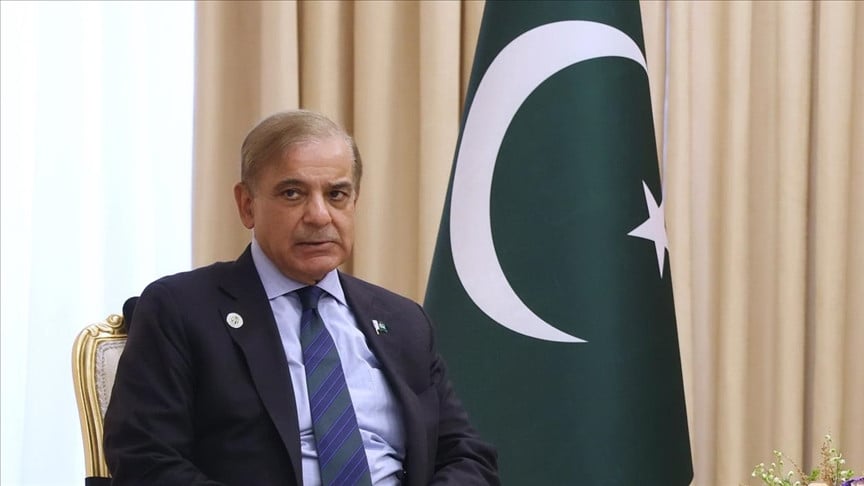 Prime Minister Muhammad Shehbaz Sharif on Wednesday chaired an important meeting of the Economic Advisory Council, where members of the council expressed their full confidence in the government’s economic policies and presented key suggestions aimed at further strengthening Pakistan’s economic growth.
Prime Minister Muhammad Shehbaz Sharif on Wednesday chaired an important meeting of the Economic Advisory Council, where members of the council expressed their full confidence in the government’s economic policies and presented key suggestions aimed at further strengthening Pakistan’s economic growth.
PM Shehbaz, welcoming the recommendations, instructed the relevant authorities to collaborate with the council members to form a comprehensive action plan based on these suggestions.
He emphasized that economic stability was not the result of an individual effort but the collective efforts of the entire team.
Reiterating his commitment to work for the sustainable development of the economy, he stated that the current potential for regional trade would be fully utilized. The prime minister also highlighted efforts to make local industries capable of competing in international markets with their exports.
“Industry, agriculture, IT development, job creation, and increasing exports are among the government’s top priorities,” he said adding that the prime minister was focused on establishing green data centres in the country.
He said efforts were also underway to improve telecommunication services and provide internet access to remote areas, which will help boost the number of freelancers and IT exports.
The prime minister pointed out that consultations were also ongoing regarding the regulation of digital currencies.
He also stressed the need to turn the meeting’s constructive discussions into actionable plans.
Participants of the meeting acknowledged that Pakistan’s economy was stable and progressing towards growth, saying that price stability had led to an increase in production.
They said the government’s economic team had proved all projections and analyses wrong and for the first time, global economic institutions, the business community, and investors were united in acknowledging the government’s action plan. The participants also commended the prime minister for his serious commitment to implementing institutional reforms, which had not been seen in Pakistan’s history before.
The participants were of the view that the improvement in the country’s tax system, ease of regulations, and the creation of a business and investor-friendly environment had contributed to the growth in all major sectors.
They noted that for the first time in history, there was easy access for the business community to the government’s economic team, and regular consultations are taking place.
The reduction of smuggling has also contributed to the increase in exports, which is a positive development, they said.
Separately, the Economic Affairs Division stated on Wednesday that Pakistan obtained $4.58 billion in loans from July 2024 to January 2025.
According to the Economic Affairs Division, this includes $2.32 billion received under agreements, $329.1 million from bilateral agreements, and $500 million from foreign commercial loans.
Additionally, investments worth $1.12 billion were made through the Naya Pakistan Certificates. The total estimated financing for the current fiscal year is $19.39 billion.
Compared to the previous year, Pakistan has seen a 30% decrease in financing during the same period. Last year, the country had borrowed $6.30 billion during the same time frame.
The Asian Development Bank (ADB) provided $1.48 billion, while the World Bank disbursed $573.8 million during the same period. Pakistan also received financing from China ($99.1 million) and France ($102.5 million).
Furthermore, the Islamic Development Bank provided a total of $400 million in loans to Pakistan.